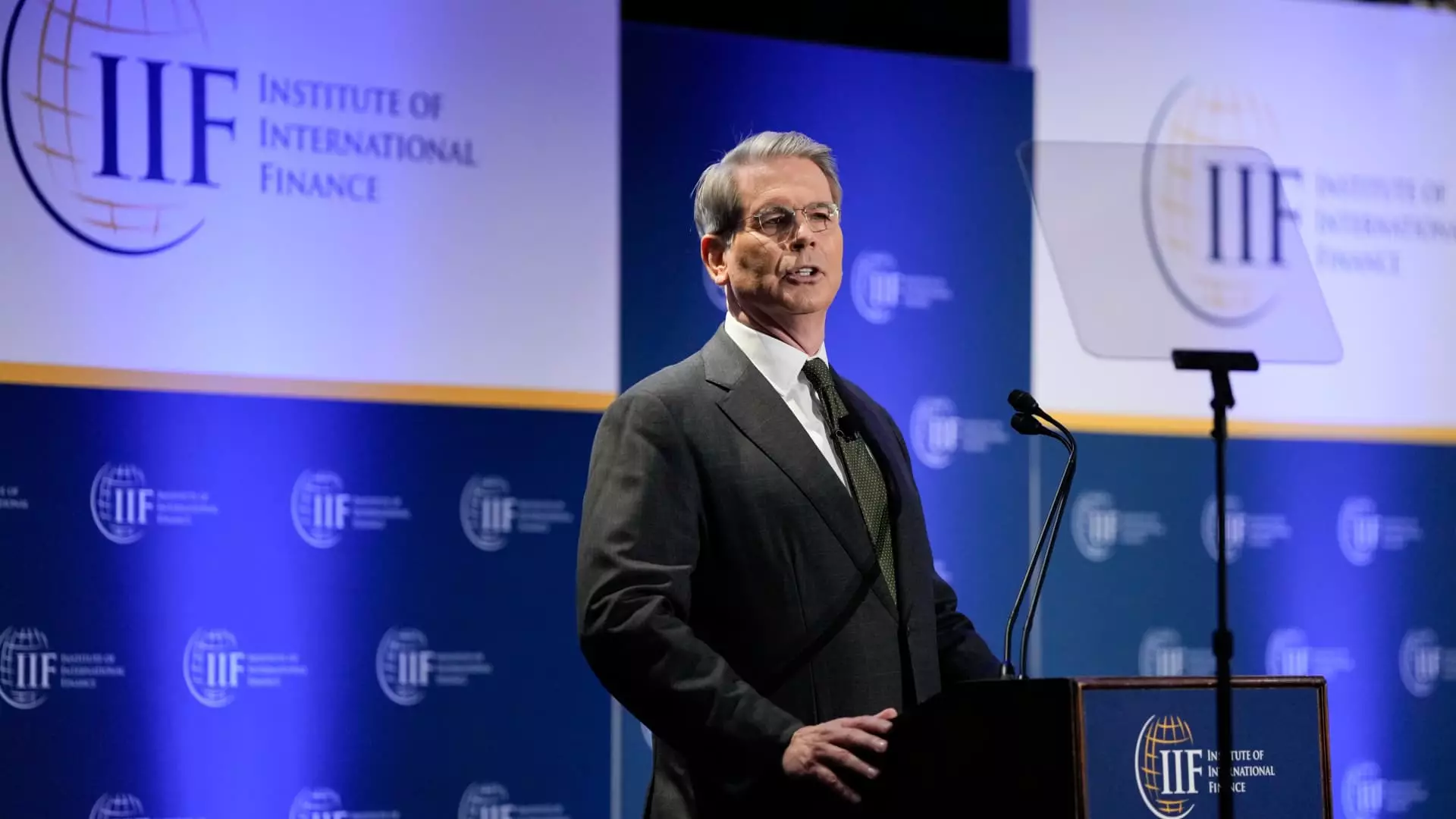In a world teetering on the brink of economic uncertainty, Treasury Secretary Scott Bessent’s recent remarks suggest a rare flicker of hope—a chance for transformative change in U.S.-China trade relations. Bessent’s assertion, “there is an opportunity for a big deal here,” is not just a statement of intent; it is a clarion call for a pragmatic rethinking of how we engage with one of the most crucial economic players of our time. The stakes are incredibly high, and understanding the nuances that underline this discourse is essential for every stakeholder—from policymakers to common citizens invested in the economic fabric of society.
What makes this opportunity particularly compelling is Bessent’s invitation to collaborate on a new economic framework. When he states, “If they want to rebalance, let’s do it together,” it signals a departure from the prevailing adversarial stance that has permeated U.S.-China relations under the Trump administration. Rather than retreating into a space defined by tariffs—where the current landscape is marred by punitive 145% duties—Bessent’s approach offers the possibility of negotiation and mutual benefit.
The Tariff Tango: A Double-Edged Sword
While Bessent acknowledges the need for addressing imbalances that have been detrimental to American manufacturing and supply chains, it’s crucial to analyze the broader implications of such tariff-heavy policies. Trump’s decision to impose glaring tariffs not only burdens consumers but also risks initiating a cascade of retaliatory measures that compromise global cooperation. The alarming prospect voiced by investors, including Ray Dalio, that we could inch closer to a downturn worse than a recession looms large. A radical rethink is essential to steer clear of this ominous forecast.
The prospect of reducing tariffs from astronomical rates of 145% down to a still hefty 50% or 65% raises a critical question: Is this merely a band-aid on a festering wound? The numbers suggest that a mere adjustment may not rectify underlying structural issues in the economy; it risks fostering complacency when profound, systemic change is necessary. True rebalancing necessitates addressing the deep-rooted policies that have led to these imbalances, rather than merely adjusting the numbers on a ledger.
Reforming Global Financial Institutions
Bessent’s ambition to reform international financial institutions like the International Monetary Fund (IMF) and the World Bank is not just timely, it is imperative. He rightly highlights the mission creep that has diverted these institutions from their founding purpose. The notion that the World Bank continues to extend loans to countries like China, which has long outgrown its developing status, is indicative of a more profound misallocation of resources endemic to our global financial architecture.
As Bessent argues, “treating China as a ‘developing country’ is absurd,” and this absurdity must end. This institutional inertia not only undermines the effectiveness of these bodies but also stifles private-sector growth in developing nations that genuinely need support. This is an intersection where pragmatic policies can catalyze job-rich growth—a direction that aligns with center-wing liberal values advocating for opportunity and sustainability rather than dependency.
Confronting Economic Security
Amid the discussions of rebalancing and reform, it is also crucial to shine a light on the intertwined struggles of economic security and national sovereignty. Bessent’s urgent call to recognize that external policies have “hollowed out America’s manufacturing sector” transcends textbook economics—it is a clarion call to prioritize national interests in an era of globalization. The intricate web of global supply chains reflects a reality where economic interdependence can swiftly turn into vulnerability.
Investing in domestic manufacturing and establishing fair trade practices should be prioritized. The foundation for a sustainable economic future relies on a balanced, fair approach that cultivates resilience against external shocks while fostering innovation and competitiveness at home. If we embrace Bessent’s insights and the notion of a “beautiful rebalancing,” we must not merely envision an economic adjustment but also a comprehensive strategy that safeguards our national interests while championing international solidarity.
The path ahead is complex, filled with nuanced negotiations and tough choices, but rejecting an adversarial approach in favour of cooperation might just be the hallmark of a new era in global trade relations—one that prioritizes equitable progress over isolation.


Leave a Reply